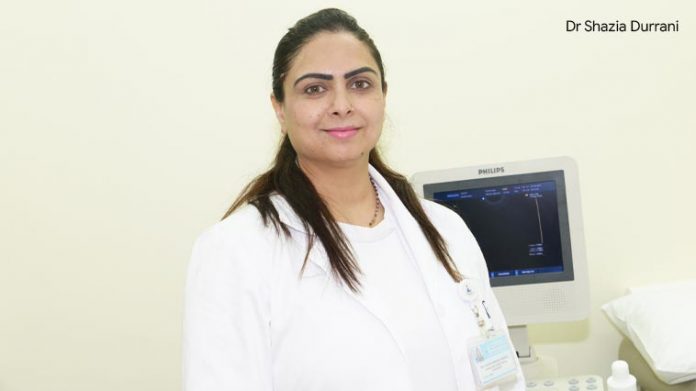Dr Shazia is from Pakistan and has been in Bahrain less than a year. She says: “I thought this region would be a great place to work and would provide opportunities. I’ve been qualified for 19 years and working in this speciality for more than a decade.
“I chose this field because I have been passionate about women’s health from the beginning. In my country, women suffer greatly; I wanted to help them and give them confidence and basic health. I am particularly keen on working with young women as these girls are the ones who have to lead in the future – mothers, sisters, wives and professional women. Women have multi-dynamic roles in society so their mental and physical wellbeing are of prime importance. Therefore, we have to focus on that to build a strong and healthy nation.”
Teenagers and Young Women
Girls and women in this age group need mental wellbeing. This comes through addressing their issues and giving them importance. We have to look at the problems they are facing in health and education.
They should be vaccinated and get good nutrition. If they are nutritionally deprived, they are more prone to infections which can affect later fertility as well as causing pregnancy and delivery issues.
We also need to instill self-awareness so that they follow up on screening.
Cervical cancer is the third most common cancer in females after breast and colon. But there’s a great vaccine available. Vaccinating against the HPV virus, particularly in teens, is extremely important.
Sexually transmitted disease is a problem in Bahrain and the HPV vaccination is not widely available. But, we have it at BSH and it offers 99 per cent protection against the virus which is a prime cause of cervical cancer.
Also, sex education should be on the curriculum for teenage girls.
The most common problems I see in Bahrain are: sexually transmitted diseases – frequently pelvic inflammatory disease; and cervical, ovarian and breast cancer.
Middle Age (but under reproductive age)
Women in this age group can experience hormonal disturbances, menstrual disturbances and weight gain; this can be for a number of reasons – environmental, lifestyle-induced or genetic. We need to address these issues. These women should have regular screening and check-ups to prevent future complications such as infertility and other health issues.
High-risk groups, because of family risk factors (such as BRCA1 and 2) should see a doctor yearly, or six-monthly depending the level of risk. They should also carry out regular self-examination of the breasts and yearly mammography. Risk-reducing surgery is available for those who are at increased risk.
Symptoms that should not be ignored include recurrent discharge, lower pelvic or abdominal pain, menstrual irregularity and pain upon intercourse.
Post Menopausal
This generation is often ignored but their wellbeing is also very important. The whole family will be affected if they are unwell. Women in this age group may suffer from hot flushes and bone weakness, due to the deprivation of female hormones, as well as dementia and cardio vascular issues.
However, they can receive the right treatment and can benefit from things such as HRT (hormone replacement therapy), pelvic floor exercises, which will help with any urinary issues, and a healthy lifestyle including an improved calcium intake for the bones.
Any signs of bleeding or discharge after menopause should not be ignored as chances of malignancy are increased in this age group. Other symptoms to be aware of are altered appetite and unexplained weight loss.
Obesity is very common in the Bahraini population. It can lead to infertility, hormone disturbances, polycystic ovaries, diabetes in pregnancy and a great risk of hypertension.
If an overweight patient becomes pregnant, it can lead to a high-risk pregnancy with multiple complications for delivery including an increased risk of haemorrhage.
Women should be aware and make sure their BMI is optimal before they seek to become pregnant through IVF. Their Gynecologist, dietitian and physician will work together to help control their weight and this may mean bariatric surgery. If the BMI is above 45, surgery is recommended prior to pregnancy.





































